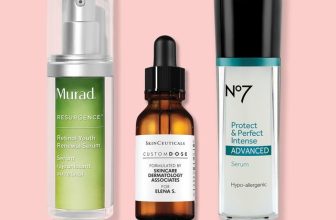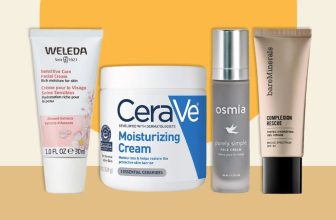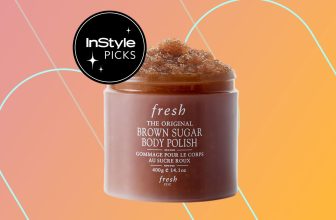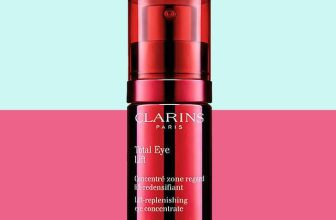Safe Sunscreen in Pregnancy
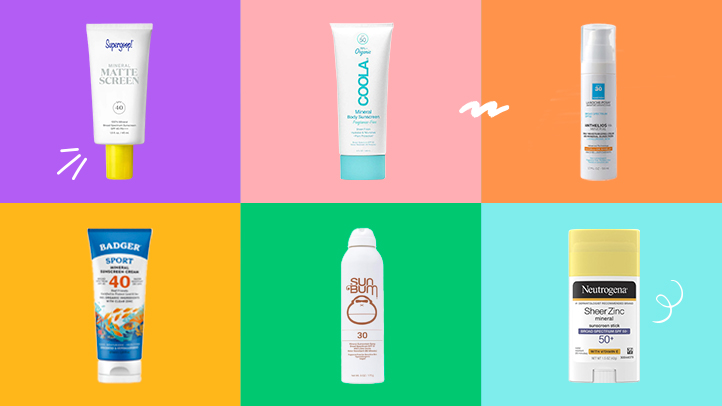
When pregnant, choose safe sunscreen to protect your skin. Look for mineral-based sunscreens with zinc oxide or titanium dioxide.
Safe Sunscreen in Pregnancy is a beautiful journey, but it comes with its own set of challenges, including heightened skin sensitivity to sunlight. It’s crucial to protect your skin from harmful UV rays, but many conventional sunscreens contain chemicals that may not be safe for use during pregnancy.
As a result, expecting mothers should opt for safe sunscreens that are free from potentially harmful ingredients. By selecting mineral-based sunscreens with ingredients like zinc oxide or titanium dioxide, pregnant women can shield their skin from the sun’s rays without worrying about potential risks to their health or the health of their baby. Let’s delve into the importance of using safe sunscreen during pregnancy and explore the key factors to consider when choosing the right product for your skin.
Introduction To Sunscreen And Pregnancy
Discovering safe sunscreen options during pregnancy is essential for protecting your skin from harmful UV rays without compromising your baby’s health. Opt for mineral-based sunscreens with zinc oxide or titanium dioxide for a pregnancy-safe sun protection routine. Prioritize your skin’s well-being while expecting by choosing the right sunscreen products.
Importance Of Sun Protection
Sun protection is crucial during pregnancy to shield the skin from harmful UV rays.
Specific Concerns For Pregnant Women
Pregnant women need safe sunscreens to avoid skin issues and protect the baby. During pregnancy, protecting your skin from the sun is essential. Harmful UV rays can lead to skin damage and increase the risk of developing conditions like melasma. Using safe sunscreen products can help prevent these issues.
Importance Of Sun Protection
Sun protection is crucial during pregnancy to shield the skin from harmful UV rays. Regular application of sunscreen can prevent skin damage and reduce the risk of skin cancer.
Specific Concerns For Pregnant Women
Pregnant women need safe sunscreens to avoid skin issues and protect the baby. Certain ingredients in conventional sunscreens may pose risks to the developing fetus. Opting for pregnancy-safe sunscreens is vital for the well-being of both the mother and the baby.
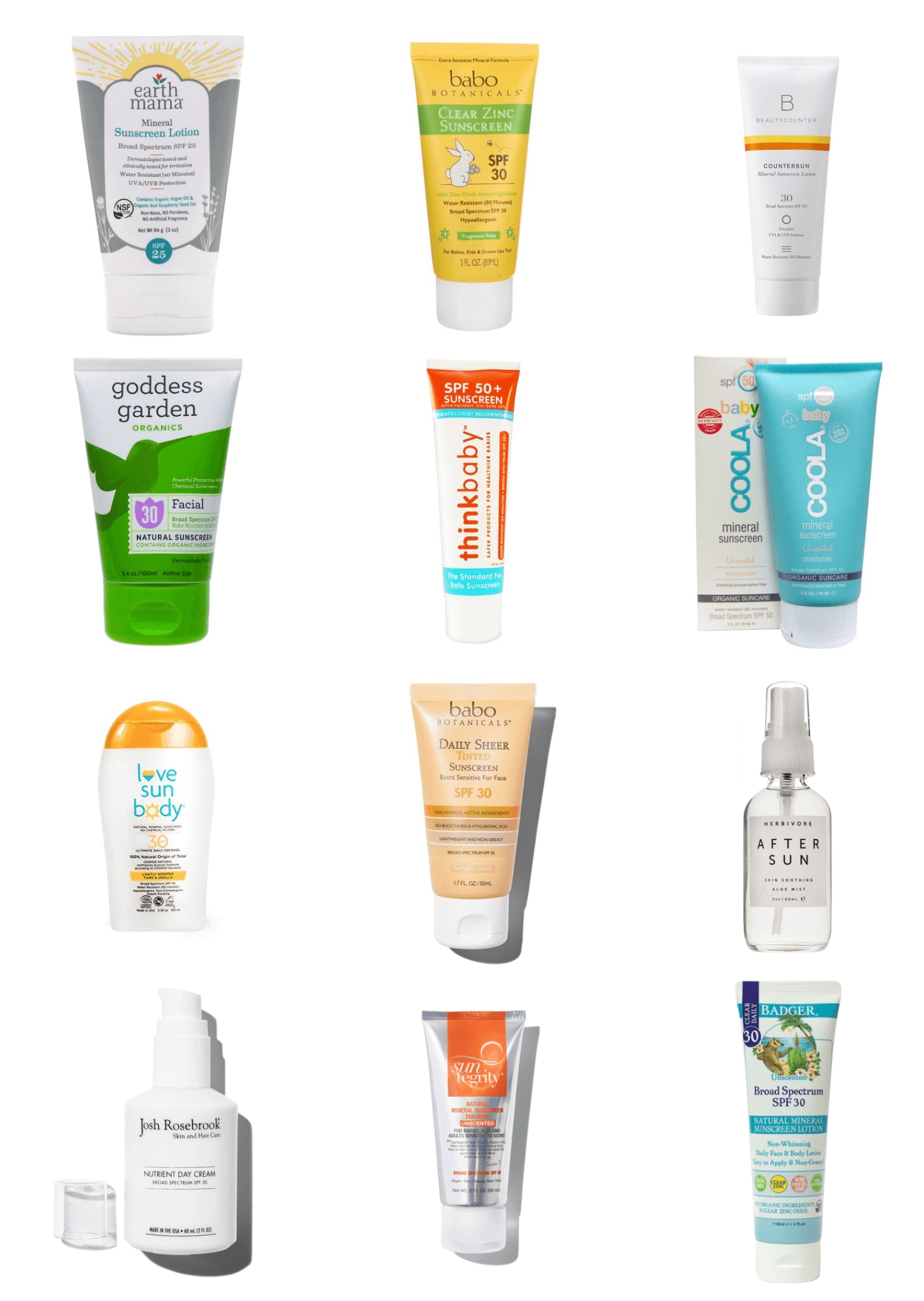
Choosing The Right Sunscreen
Ensure the safety of your skin during pregnancy by choosing a sunscreen with mineral filters like zinc oxide or titanium dioxide. Look for options free from oxybenzone and retinyl palmitate, and consider consulting with your healthcare provider for added peace of mind.
Chemical Vs Physical Sunscreens
When it comes to choosing the right sunscreen during pregnancy, it’s essential to consider the differences between chemical and physical sunscreens. Chemical sunscreens work by absorbing UV rays and converting them into heat, while physical sunscreens create a protective barrier by reflecting and scattering UV rays away from the skin.
Key Ingredients To Look For
When selecting a safe sunscreen for pregnancy, it’s crucial to pay attention to the key ingredients in the product. Look for sunscreens that contain titanium dioxide and zinc oxide as these are considered safe and effective for pregnant women. These mineral-based ingredients provide broad-spectrum protection and are less likely to cause irritation or allergic reactions.
Ingredients To Avoid
When choosing a safe sunscreen during pregnancy, it’s crucial to be aware of harmful chemicals commonly found in many conventional sunscreens.
Some ingredients to avoid in sunscreens include: Oxybenzone, Octinoxate, Homosalate, and Octocrylene, which can disrupt hormones and cause skin irritation.
Avoid retinyl palmitate, a form of Vitamin A that may increase skin sensitivity to the sun and fragrance, which can contain phthalates linked to developmental issues.
Opt for mineral-based sunscreens with zinc oxide or titanium dioxide as active ingredients for a safer option during pregnancy.
Look for sunscreens labeled “broad-spectrum” to ensure protection against both UVA and UVB rays, and choose products with natural oils like coconut or jojoba for added hydration.

Application Tips For Effective Protection
It is essential to apply sunscreen during pregnancy to protect your skin from harmful UV rays. However, the effectiveness of sunscreen depends on how you apply it. Here are some best practices for applying sunscreen effectively:
Best Practices For Sunscreen Application
- Apply sunscreen 15-30 minutes before going outside
- Use a generous amount of sunscreen to cover all exposed skin
- Reapply every 2 hours or after swimming or sweating
- Choose a sunscreen with broad-spectrum protection and an SPF of at least 30
- Don’t forget to apply sunscreen to your lips, ears, and the top of your feet
Proper application of sunscreen ensures that you are protected from harmful UV rays and helps prevent skin damage and premature aging.
Areas You Shouldn’t Miss
When applying sunscreen, there are some areas that are commonly missed. Make sure to apply sunscreen to these areas:
- Scalp and hairline
- Ears and neck
- Back of the hands and forearms
- Tops of the feet and toes
- Lips
These areas are often overlooked, but they are just as susceptible to sun damage as other parts of your body. Paying attention to these areas can help ensure that you are fully protected from harmful UV rays.
The Impact Of Uv Rays During Pregnancy
Protecting your skin from UV rays during pregnancy is crucial. Opt for safe sunscreens that are free from harmful chemicals like oxybenzone and retinyl palmitate. Look for mineral-based options with zinc oxide or titanium dioxide for maximum protection.
During pregnancy, a woman’s body goes through many changes, including changes in her skin. However, when it comes to sun exposure, it’s not just about the changes in appearance. The impact of UV rays during pregnancy can have long-term effects on the health of both the mother and the baby.
Skin Changes And Sensitivity
Pregnant women may notice changes in their skin, including dark patches, acne, and sensitivity to the sun. These changes are due to hormonal fluctuations, which can cause an increase in the production of melanin. This pigment is responsible for skin color, and an increase in its production can lead to hyperpigmentation, or darkening of the skin. Moreover, the increased sensitivity to the sun can cause discomfort, leading to redness, rashes, and even blisters. Therefore, it’s essential to use a safe sunscreen during pregnancy to protect the skin from harmful UV rays.
Long-term Risks Of Sun Exposure
Sun exposure can lead to long-term risks, including premature aging and skin cancer. It’s essential to note that the impact of UV rays during pregnancy can affect not only the mother but also the baby. Studies have shown that exposure to UV radiation during pregnancy can increase the risk of low birth weight, preterm birth, and even miscarriage. Therefore, it’s crucial to take precautions to protect the skin from UV rays. Using a safe sunscreen during pregnancy is an easy and effective way to reduce the risk of long-term damage to the skin and the health of both the mother and the baby. In conclusion, the impact of UV rays during pregnancy can be significant, and it’s essential to take the necessary steps to protect the skin. Using a safe sunscreen, seeking shade, and wearing protective clothing are simple yet effective ways to reduce the risk of long-term damage and keep both the mother and the baby healthy.
Sunscreen And Vitamin D
Using safe sunscreen during pregnancy is crucial for protecting your skin from harmful UV rays. However, it’s important to strike a balance, as sunscreen can reduce the body’s ability to produce vitamin D. Look for sunscreen with zinc oxide or titanium dioxide for safe sun protection.
Balancing Sun Exposure And Health
It’s important to balance sun exposure and health during pregnancy. Overexposure to the sun can be harmful, but adequate sun exposure is crucial for Vitamin D production.
Vitamin D Sources For Pregnant Women
Pregnant women can obtain Vitamin D through sun exposure and dietary sources. Foods rich in Vitamin D include fatty fish, fortified dairy products, and egg yolks.
Recommendations From Health Professionals
When it comes to enjoying the sun safely during pregnancy, it’s essential to heed the recommendations from health professionals. Dermatologists and OB-GYNs provide valuable guidance to ensure expectant mothers can protect their skin from harmful UV rays while maintaining their overall well-being.
Dermatologists’ Advice On Sunscreen
Dermatologists emphasize the importance of using broad-spectrum sunscreen with a minimum Sun Protection Factor (SPF) of 30. They recommend opting for physical blockers like zinc oxide or titanium dioxide, which are considered safe for pregnant women. Additionally, they advise reapplying sunscreen every two hours, especially when spending extended periods outdoors.
Ob-gyn Guidelines For Outdoor Activities
OB-GYNs encourage pregnant women to engage in outdoor activities while taking necessary precautions. They recommend scheduling outdoor excursions during non-peak hours to avoid intense sun exposure. Wearing protective clothing such as wide-brimmed hats and long-sleeved shirts, in combination with safe sunscreen application, is vital for safeguarding against UV radiation.
Faqs About Sunscreen Use In Pregnancy
As an expectant mother, it’s natural to have questions about using sunscreen during pregnancy. Here are some common queries addressed to help you stay safe and protected under the sun.
Choosing Between Spray Vs Cream Sunscreens
- Easy to apply but ensure proper coverage.
- Be cautious to avoid inhalation of chemicals.
- Provide thorough coverage and easy to control.
- Less risk of inhalation compared to sprays.
Reapplication And Water Resistance
- Reapply every 2 hours or after swimming/sweating.
- Follow the specific instructions on the product.
| Label Terms | Meaning |
|---|---|
| Water Resistant | Effective for 40 minutes in water. |
| Very Water Resistant | Effective for 80 minutes in water. |
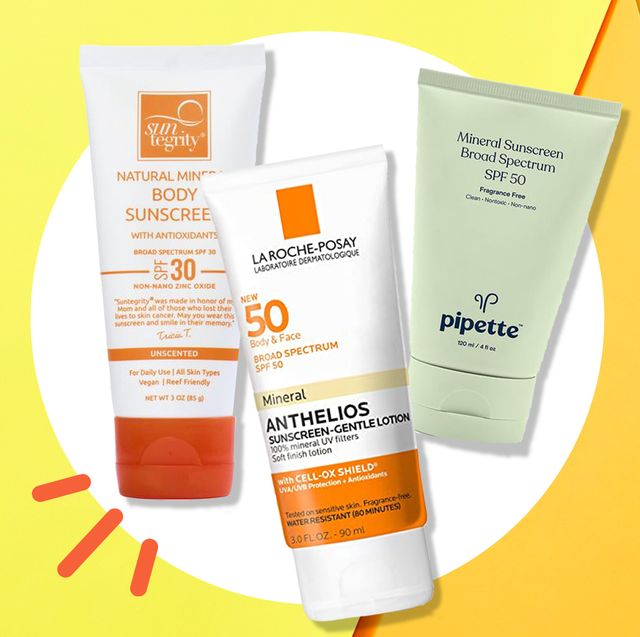
Frequently Asked Questions
What Sunscreen Can I Use While Pregnant?
You can use mineral sunscreens with zinc oxide or titanium dioxide while pregnant. Look for broad-spectrum protection and avoid oxybenzone and retinyl palmitate. Check for pregnancy-safe ingredients and consult your doctor if unsure.
What Should I Avoid In Spf When Pregnant?
Avoid SPF with retinyl palmitate and oxybenzone when pregnant to reduce potential harm to the fetus. Opt for mineral-based sunscreens with zinc oxide or titanium dioxide for safety.
Can I Use Coppertone Sunscreen While Pregnant?
Yes, you can safely use Coppertone sunscreen while pregnant. It helps protect your skin from harmful UV rays.
Is Supergoop Sunscreen Safe During Pregnancy?
Yes, Supergoop sunscreen is safe to use during pregnancy. It is formulated with pregnancy-safe ingredients and provides effective sun protection.
Conclusion
Choosing a safe sunscreen during pregnancy is crucial for protecting your skin. Look for mineral-based options with zinc oxide or titanium dioxide. Avoid harmful chemicals like oxybenzone and retinyl palmitate. Prioritize broad-spectrum protection to shield against UVA and UVB rays.
Prioritizing your skin’s health is essential during this special time.



